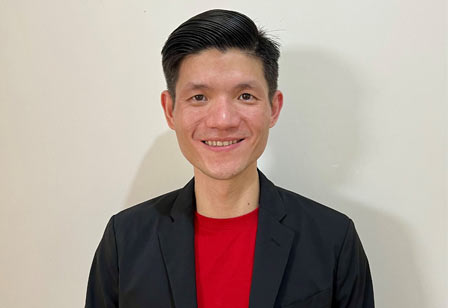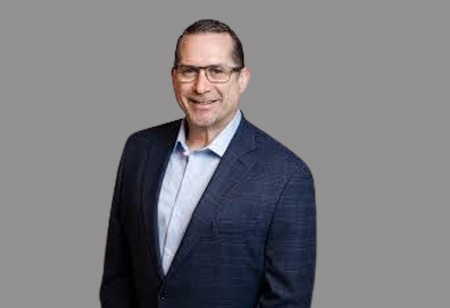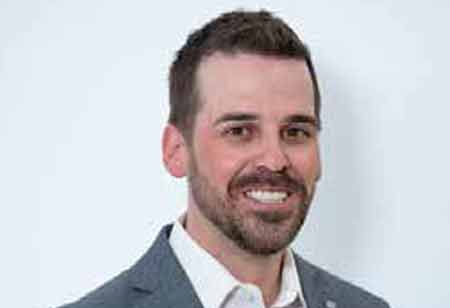THANK YOU FOR SUBSCRIBING

Technological Advancements in Industry Filtration
Brook Vickery, Vice President and Manufacture, Flint Hills Resources

 Brook Vickery, Vice President and Manufacture, Flint Hills Resources
Brook Vickery, Vice President and Manufacture, Flint Hills ResourcesBrook Vickery is the vice president and manufacturing manager at Flint Hills Resources. He has been with Flint Hills since 1998. He spent more than a decade at the company's Pine Bend facility in Rosemount, Minnesota, where he held a variety of leadership positions before transferring to the Corpus Christi refineries in 2015. Vickery previously served as the plant manager for the refineries. Vickery earned his mechanical engineering degree from Oklahoma State University and his master's degree in business administration from the University of Iowa.
What do you Think are Some of The Major Pain Points in the Current Market?
The application of a filtration process system in oil and gas refineries is crucial for removing contaminants during the three steps process of manufacturing; upstream, downstream, and midstream. These filters are critical to ensure that processing units function with maximum uptime and deliver high-quality outputs.
Today, the process sector is advancing rapidly as sensors and data become more inexpensive and ubiquitous. Thanks to its remote monitoring capabilities, the internet of everything (IoE) is also becoming a key component in industrial filtration systems, allowing firms to track their filtration deployments’ conditions in real-time. The challenge arises with transforming unconsolidated data into actionable insights and getting it to recognize abnormalities automatically; developing this automation capability is a complex process that requires manual input to function correctly.
What are Some of the Market Trends that have Evolved to Address the Prevalent Issues? Are there any Current Advancements that you’ve adopted into your Portfolio?
In the current market, industrial filters and early warning solutions such as leak detection monitoring, fence line monitoring, wireless vibration monitoring, and corrosion control systems are going through continuous development to help advance process safety. For instance, Flint Hills Resources’ new leak detection sensor network technology can detect minute leaks across different filtration processes. The detection data is combined with meteorological data like temperature, wind, humidity, and more, before running it through an artificial intelligence platform that triangulates and collects information on where the leak is. Our firm also develops a fence-line monitoring system that provides the petroleum industry with an early warning system able to detect leaks down to parts-per-billion— used to measure the concentration of a contaminant—for consistent compliance with the refinery sector rule. Another key emerging technology in the filtration arena is wireless corrosion detection devices that can notify maintenance personnel of corrosion mechanisms within their facility. This technology is substantial in automating and tracking variable corrosion rates, which has historically been a manual process that drives additional challenges. Apart from the technological advancements, the manufacturing industry is seeing a dip in the prices of these devices, making them easily accessible to petrochemical refineries.
"From a project perspective, organizations must reinforce wireless networks to support the deployment of filtration systems and allow the running of the collected data through an analytics model necessary for its conversion into useful information"
For many years, the cost of vibration monitoring was so exorbitant that manufacturers only used it on massive equipment such as compressors and multistage pumps. Currently, our firm uses a device called the Ranger Pro vibration sensor from Bentley Nevada, and the price has come down to the point where we were able to implement vibration monitors on all our hydrocarbon pumps. We’ve got over 3000 wireless vibration monitors within the plant. These devices send a vibration signature to our cloud infrastructure to give early warning on any performance issues developing in the rotating equipment.
Can we Talk about one of your Recent Project Initiatives? How are you Leveraging the Emerging Technology Trends to Make the Project Successful?
From a project perspective, organizations must reinforce wireless networks to support the deployment of filtration systems and allow the running of the collected data through an analytics model necessary for its conversion into useful information. Once a problem is detected in a filtration system, it is imperative to have data on why the issue occurred in the first place, which enables quick and easy repair and maintenance. Further bolstering the importance of this data is the various types of filtration system issues that cannot be mitigated with maintenance or repair. In some cases, the problems can stem from the faulty implementation of wireless devices.
Having an integrated platform can help enhance the mobility of all business operating procedures for filtration maintenance. Within Flint Hills Resources, we have digitized our operational procedures using a knowledge management system called AcceleratorKMS. Such platforms are a valuable tool in bridging the gap between operators in the field and process control board personnel, simplifying the execution of complex procedures. With this new mobile platform, the operator can complete steps and manage checklists directly from his smartphone, automatically and instantaneously tracking and recording the procedure’s progress. Above all, the successful digitization of operating methodologies can only be achieved when firms focus on creating an operator-centric platform co-developed with end-users to make the UI more seamless.
Read Also

















ON THE DECK